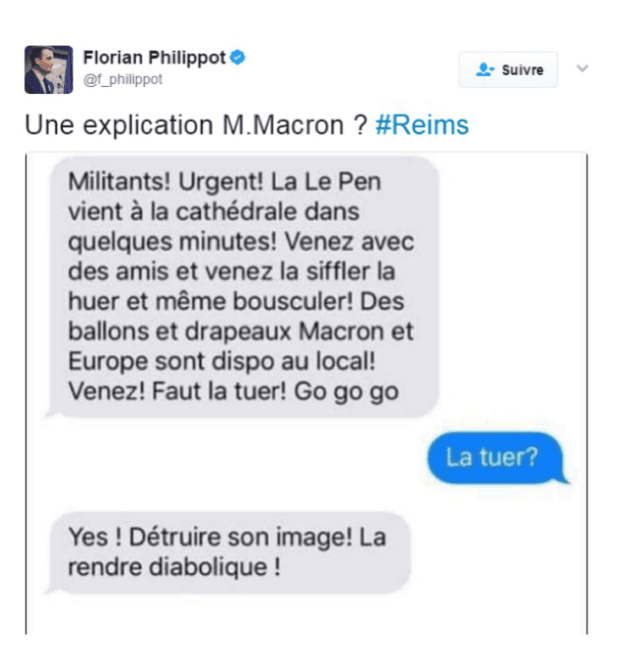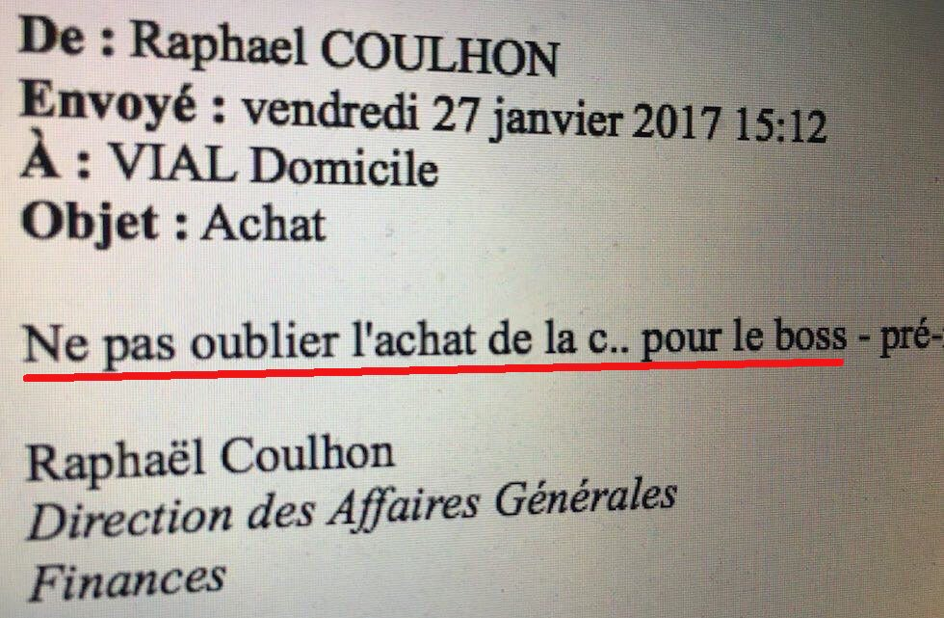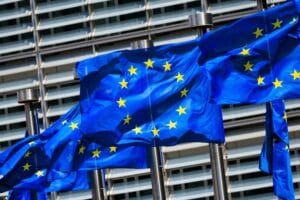Sommaire
Anti-fake news law: a grain of sand in the desert

During his New Year's address to the press, Emmanuel Macron announced an anti-fake news law in an electoral context. As it stands, it's an interesting initiative, but it's just a grain of sand in the desert, and it's going to run into a lot of pitfalls.
Definition of fake news
The fact is that fake news is a non-word. It is a buzzword that has no theoretical essence. Used by everyone, everyone has their own definition. While it may suffice in a media context to describe a particular type of subject, its definition is essential if we are to pass into law. What is fake news? Are we talking about unconfirmed news? (Pénélope Fillon in the Canard Enchaîné?) Are we talking about information that subsequently proves to be incorrect? (The typical case of a false study, or hoax) Are we talking about reading an event? The simple reaction of many French and Belgian journalists pleading for a journalistic ethics council illustrates that Emmanuel Macron, receivers, journalists and other players are not talking about the same thing. Problem: if the definition of fake news is too broad, it risks encroaching on fundamental freedoms (expression, the press, etc.).
Total complexity of the phenomenon during elections
However, let's take just the contextual framework that Emmanuel Macron applied, namely elections. If there is a need for a legislative framework in elections, it is when there is manipulation of the electoral process. In my view, there are three possibilities for fake news in this very specific context:1. A foreign influence operation based on erroneous information. False information is created and manipulated with the aim of spreading it in certain circles.- When Russia, via a propaganda agency, uses sponsored advertising to target people who like Donald Trump, for example, in order to spread fake news about Hillary Trump.
- Whenan organisation or group has copied the website of the Belgian daily Le Soir. Same site, same logo, same interface (the address of the site was lesoir.info, not lesoir.be), except for one thing: an article mentioning the fact that Emmanuel Macron was financed by Saudi Arabia . And that four fake accounts with generic names sent the link to the press as well as accounts disliking Emmanuel Macron with the aim of getting them to relay it.
- When Mediapart's blog platform or L'Express's Express Yourselves, which provide a personal publication space, were used to relay a rumour that Emmanuel Macron had a hidden bank account and this was relayed overnight by more than 80 accounts created for the occasion.
- When Philippot or one of his activists doctored the visual of an SMS to make it look like a call to lynch Marine Le Pen
 What can be done about it? The rumour is put in a temporary space which we know will disappear. No web host is used, or only in a roundabout way. Even if we had the information on Russian advertisers for Facebook, all they would have to do is set up another company to do exactly the same job. No legislation or procedure can combat this. We need a systemic response. Similarly, insofar as this information circulates using real people who really think they are sharing real information. Under the rule of law, can we punish these real people?
What can be done about it? The rumour is put in a temporary space which we know will disappear. No web host is used, or only in a roundabout way. Even if we had the information on Russian advertisers for Facebook, all they would have to do is set up another company to do exactly the same job. No legislation or procedure can combat this. We need a systemic response. Similarly, insofar as this information circulates using real people who really think they are sharing real information. Under the rule of law, can we punish these real people?
- This was the case when individuals picked up on an old sequence broadcast on the France 3 news programme in which Emmanuel Macron was seen washing his hands after meeting fishmongers. The footage that preceded this showed him touching a fish handed to him by one of the fishermen. Now that this has been removed, the impression left is chilling, as it really does look like he is washing his hands after meeting "the lowly rabble". So it was that during his visit to the Whirlpool workers, the workers shouted out this state of affairs to him. When questioned by journalists, they stubbornly defended their version.
- Ali Juppé: when Alain Juppé is portrayed as a Muslim man and is accused of being in the pay of Islam, without too much misinformation, but with a mix of several pieces of information, some of which include approximations.
- When during the Macronleaks, leak of real emails, fake emails are slipped in with the aim of influencing the election.
 What can be done about this? There is nothing more real than real news or a real video. When someone paints Alain Juppé as Ali Juppé by mixing information, some of which is incorrect, is that satire? Fake news? Can those who relay this be punished? Under what law? What's more, once again, Facebook and Twitter ads are not being used and no web host is simply relaying this.3. The framing of informationThis is a much broader process which consists not in inventing or falsifying information but in applying a different reading framework to it. It's a kind of 'framing', the lens through which we look at the facts.
What can be done about this? There is nothing more real than real news or a real video. When someone paints Alain Juppé as Ali Juppé by mixing information, some of which is incorrect, is that satire? Fake news? Can those who relay this be punished? Under what law? What's more, once again, Facebook and Twitter ads are not being used and no web host is simply relaying this.3. The framing of informationThis is a much broader process which consists not in inventing or falsifying information but in applying a different reading framework to it. It's a kind of 'framing', the lens through which we look at the facts.- When Sputnik talks about the Macronleaks, saying that it comes from Wikileaks and that it is creating a real disturbance in the population, it is not talking aboutfalse information. There is no false information, just a way of looking at things.
- When Russia Today or Sputnik make their front page and give 90% of their coverage to riots or news of rapes committed by foreigners. These stories are real.



